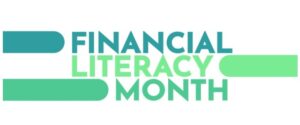Can you relate to this? It’s a Friday night after a long, exhausting workweek, and your friends invite you out for dinner. Secretly, you are on a budget and want to see a big number in your savings account for future plans, but saying “no” feels awkward.. You cherish the time spent with friends and don’t want to disappoint them or miss out, so you go even though, at this point in time, you’d really rather save the money. Loud budgeting is a tool many are now using to help mix friends and budgets.
What is loud budgeting?
A content creator named Lukas Battle coined the term. In a popular TikTok video, he explained that instead of being quiet about your budget, be loud about it. This means if something does not fit your budget, you can confidently say no and explain why, even if you simply do not think an expense is worth paying for.
For example, you might tell your friends, “I can’t dine out tonight because I am saving money for my emergency fund.”
Loud budgeting is about being open, proud, and smart about your spending choices instead of feeling stressed or hiding them.
In turn, break free from unnecessary spending and take control of your money.
Why budgeting matters?

Maybe you’ve noticed that prices have been soaring. In 2024, the Consumer Price Index (CPI) in Canada rose by 2.4% on average, with food prices increasing by 1.9% and shelter costs by 4.5% year-over-year.
Unsurprisingly, in spring 2024, almost half of Canadians (45%) said that higher prices made it difficult to cover their daily expenses. That is 12% more people than just two years earlier.
As of December 2024, Canada’s national unemployment rate stood at 6.7%, higher than the 2017–2019 average of 6.0%. The situation is even more severe among youth, with the unemployment rate reaching an astonishing 14.4%.
These are just a few reasons to start budgeting. Planning ahead makes financial surprises much easier to handle.
What can loud budgeting get you?
Loud budgeting is not just about saying no. There are some really key benefits to budgeting loudly.
When you share your financial goals, you can find people who think the same way. Research shows that Gen Zers and Millennials are saving more than the older generation. Also, they’re prioritizing saving money. This means you can easily connect with like-minded peers and support each other.
Being open about your budget also creates accountability. When others know your plan, it reinforces your commitment and makes you more likely to stick to it.
Discussing money more openly naturally opens up more opportunities for important lessons about personal finance, money saving, and opportunity cost. Understanding what you gain and what you give up with each spending decision. These insights build habits that will benefit you for years to come.
Seeing others share their successes can motivate you to keep going. Posting your own progress on TikTok might inspire others while helping you build new skills like video editing.
Most importantly, if you practice loud budgeting, you can save money and reach your financial goals.
Any risks?
There are a few things to watch out for when sharing your budget.
For one, talking openly about your money can produce some anxiety. It’s only natural to feel anxious when doing something new. This is especially true when it involves something society typically considers private.
It can also trigger comparisons with peers, leaving you feeling guilty or inadequate for spending money on even the most necessary purchases. Some people might try to make you share more than you are comfortable with.
You could also face judgment for the way you choose to save or spend money. Or you might experience subtle peer pressure that pulls you away from your own financial goals and plans.
Want to budget out loud wisely?
There are a few tips to reduce the risks mentioned above.
When sharing, focus on your progress, not exact numbers. This way, you protect your privacy while still celebrating milestones.
Openly talk about the habits and principles you’re using to reach your savings plans. It is about “how” you save rather than “how much” you saved.
Do not make saving a competition. The goal is not to prove who has the biggest balance, but to learn how to save money consistently and how to spend money wisely. Use your platform wisely. Yes, this is about taking the stigma out of talking about money, but keep sensitive information safe. Connect with people who truly have your best interests at heart. Take this opportunity to boost your financial education and share what you learned. You can learn about personal finance basics like credit card debt, interest rates, and emergency funds.
Remember, being savvy with money is nothing to be embarrassed about. You’re learning and protecting your financial future while having fun.
Think loud budgeting sounds hard?
Getting started is easier than you think. Just like any other plan, start by setting a clear savings goal. It can be something big, like a trip, or something small, like a night out.
Next, set your spending principles. Decide what is necessary and what is not. Always keep in mind that saving money does not mean lowering your quality of life.
Practice saying “no” in a positive way – just like this: “I am skipping dinner out this time because I am saving money for my trip to Montreal.”
Track your daily and weekly spending to see where your money goes. Learn from your spending patterns.
If you like, share your goal publicly on social media and celebrate small wins to reward yourself along the way to keep motivated.
Ready to be proudly on a budget?
Loud budgeting is not about missing out; it is about choosing what matters most. You can say proudly to your loved ones and friends that you are on a budget, so you can enjoy time together without financial stress. Ultimately, you’ll save enough money for your future.
So, next time you hear ‘Who wants to dine out?’ you can proudly say, ‘I am doing loud budgeting, how about a potluck instead?’ and still have a blast.





